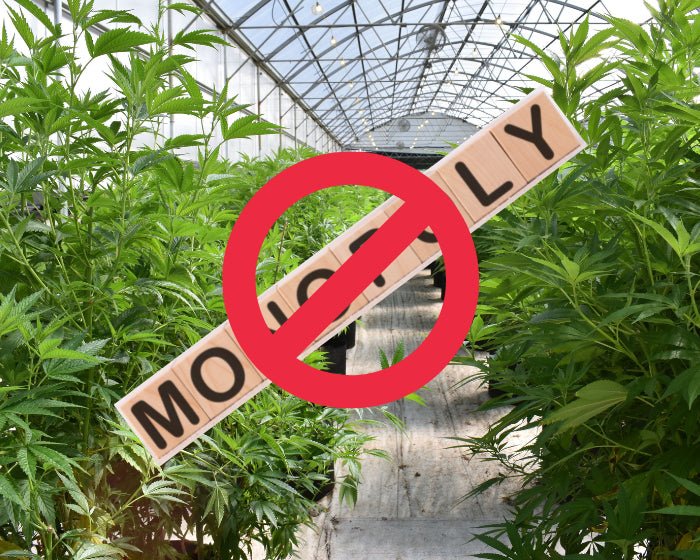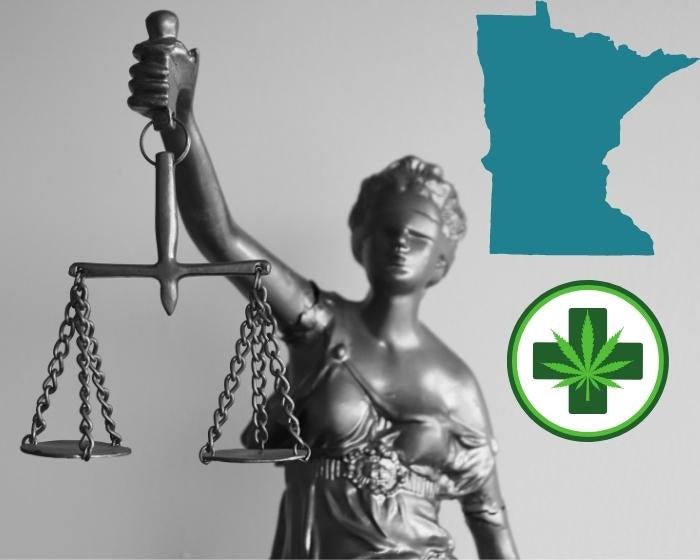As Election Day looms, this is where marijuana legalization efforts stand across the United States.

As Election Day nears, the polarizing issue of cannabis legalization is still a hot-button issue facing lawmakers and state populations across the U.S., according to politico.com. Currently, 19 states have adopted full legalization, while an additional 19 have ratified medical marijuana programs. However, of the remaining holdouts, many are steadfastly conservative, where skepticism runs deep among legislators.
But in the estimation of many experts, the politics of cannabis legalization persists as a perplexing conundrum. Last year only four states passed legislation making marijuana use legal. So far this year, only Rhode Island has managed to legalize recreational cannabis use. Yet despite this small number, broad nationwide public support for liberalizing marijuana laws is at an all-time high.
According to Karen O'Keefe, state policy director for the Marijuana Policy Project, "Elected officials remain far behind the times." O'Keefe believes if it were up to voters, every state would have some form of legal cannabis by now.
"Elected officials remain far behind the times."
- Karen O'Keefe, State Policy Director for the Marijuana Policy Project
This misalignment is evident in states like Ohio, Hawaii, and New Hampshire, where the legalization of recreational cannabis fell short this year. Likewise, in Kansas, South Carolina, Tennessee, and Kentucky, initiatives for medical marijuana programs were denied by lawmakers as well.
But there is still hope for advocates of nationwide cannabis legalization. At least half a dozen states could have legalization initiatives on their ballots this November. If all of those succeed, half of the states in the country will be able to allow adults to possess and eventually buy cannabis legally.
Below is a quick snapshot of where legalization efforts stand across the country.
Mississippi
This past January, the Mississippi State Legislature passed legislation creating a medical marijuana program by overwhelming margins. The measure was attacked repeatedly by Republican Gov. Tate Reeves for enabling patients to purchase too much cannabis in his estimation. However, he eventually signed the bill once its terms were modified, making the program's policies slightly more restrictive.
Rhode Island
As mentioned above, in May this year, Rhode Island became the 19th state to enact full cannabis legalization. The Democratic-dominated Legislature overwhelmingly ratified legislation after finally agreeing on how to automatically scrap previous marijuana-related criminal convictions and the optimum approach to regulating the industry. The bill allows for 33 dispensaries across six state regions, with sales slated to start on Dec. 1.
Maryland
After failing to pass comprehensive legalization initiatives in previous years, Maryland lawmakers have now pushed the issue of whether or not to legalize cannabis to the voters. If passed, the measure would legalize cannabis possession and use for adults over 21. According to experts, the referendum is all but guaranteed to pass due to strong public support for the issue.
In a recent Goucher College Poll, 59 percent of Maryland residents indicated they would vote in favor of recreational marijuana on the November ballot, while 34 percent said they would vote against it. Seven percent were undecided.
South Dakota
In 2020, South Dakota voters made history by becoming the first state in the country to support medical and recreational legalization simultaneously. However, the state Supreme Court struck down the adult-use referendum as unconstitutional. Then during the most recent session, the Republican-dominated Legislature deliberated over a recreational marijuana legalization bill. And while the legislation made it out of the Senate, it didn't have the required number of votes to pass in the House. So support for legalization efforts is now again in the voters' hands.
With enough signatures to qualify for the November ballot, it's the first citizen-driven marijuana legalization initiative to be certified this year, and marijuana legalization advocates are confident it has the votes to pass. If approved, adults over 21 would be allowed to possess up to one ounce of marijuana and grow up to three plants if there are no dispensaries in the county or city where they live.
Oklahoma
In Oklahoma, it appears that voters are likely to decide whether to legalize full recreational cannabis sales after sponsors submitted nearly twice as many signatures last month as required to make the November ballot.
"The campaign right now is looking ahead to the election. We're beginning to ramp up fundraising, ramp up our voter registration efforts, and our campaign outreach efforts. But, we are not taking a single vote for granted," said Ryan Kiesel, senior campaign adviser for Oklahomans for Sensible Marijuana Laws, the group behind the legalization campaign.
"The campaign right now is looking ahead to the election. We're beginning to ramp up fundraising, ramp up our voter registration efforts, and our campaign outreach efforts. But, we are not taking a single vote for granted."
- Ryan Kiesel, Senior Campaign Adviser, Oklahomans for Sensible Marijuana Laws
However, legalization advocates will have to overcome a conservative backlash that's been growing in the state over its wildly successful medical marijuana program. Since voters legalized medical marijuana sales in 2018, nearly 10 percent of the population has enrolled, and more than 11,000 weed businesses have been licensed. But illegal "grows" over the last few years have resulted in dozens of raids that have sparked an outcry, particularly in rural areas of the state.
Of the myriad of concerns facing voters this upcoming Election Day, cannabis legalization, both medicinal and recreational, persists as a galvanizing and polarizing issue. Even among the most conservative state legislators and voters, there continues to be a push for some form of legal cannabis in almost every corner of the country. And as the legal barriers to possession and use of marijuana continue to fall, it will be intriguing to witness how much America's view and handling of the cannabis plant will continue to transform in the coming years.







































